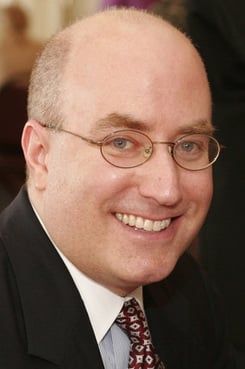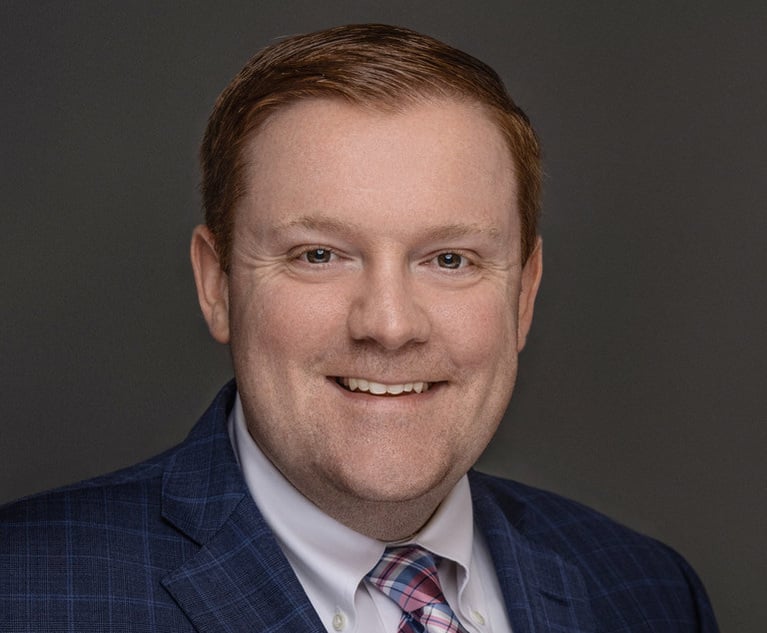Pa. High Court Alters How Objections to Jury Instructions Are Preserved
Upon Further ReviewFiling Proposed Points for Charge No Longer Suffices to Preserve Objections to Jury Instructions, Pa. Supreme Court RulesUnless…
September 17, 2018 at 01:55 PM
6 minute read
Upon Further Review
 Howard Bashman.
Howard Bashman.Filing Proposed Points for Charge No Longer Suffices to Preserve Objections to Jury Instructions, Pa. Supreme Court Rules
Unless you were monitoring new Pennsylvania Supreme Court rulings in the second half of August, you may have missed an important decision that changed how objections to a trial court's jury instructions in a civil case must be preserved going forward. In Jones v. Ott, No. 12 WAP 2017 (Pa. Aug. 21, 2018), the Pennsylvania Supreme Court by a sharply divided 4-3 vote held that, in the future, merely filing proposed points for charge without more will be insufficient to preserve an objection to a trial court's contrary jury instructions.
The Jones case was tried to a jury, which returned a verdict in favor of the defendant. On appeal, the plaintiff argued that the trial court committed reversible error by failing to instruct the jury as to negligence per se. Before trial, the plaintiff's counsel filed proposed jury instructions that included a jury charge covering the concept of negligence per se. As is often the case in Pennsylvania state trial courts, the charging conference during which the parties discussed with the trial judge the proposed jury charge in this civil case was not transcribed.
What the record did disclose was that the jury charge that the trial court actually delivered contained no mention of the concept of negligence per se. The record also reflected that the trial judge asked counsel for the parties if they had anything they wanted to place on the record with regard to the jury charge that the trial court had just delivered, and counsel for the plaintiff responded, “I have no issues with the charge, Your Honor.”
The four justices in the majority in Jones agreed that plaintiff's counsel's statement that he had no issues with the charge sufficed to waive any ability to argue on appeal that the trial court committed reversible error by failing to instruct the jury regarding negligence per se. Yet three justices would have gone further to hold that merely filing proposed points for charge, without additionally objecting on the record to the trial court's refusal to use those proposed points and obtaining an on-the-record ruling on the proposed points for charge, failed to preserve an objection to the extent that a trial court's jury charge failed to incorporate what the advocate's proposed points for charge had included. Justice David N. Wecht wrote the lead opinion in Jones, which Justices Max Baer and Debra Todd joined in full.
Chief Justice Thomas G. Saylor issued a concurring opinion stating that he agreed that something more than merely filing preserved points for charge should be required to preserve an objection to a trial court's jury instructions (to the extent they diverged from an advocate's proposed points for charge), but Saylor made clear that he would impose this requirement of something more “on a prospective basis only.” Accordingly, Wecht's opinion observed in a footnote that this aspect of the court's holding would only apply going forward to cases tried to a jury after the opinion in Jones issued on Aug. 21.
Justices Kevin M. Dougherty and Sallie Updyke Mundy issued dissenting opinions, and Justice Christine Donohue joined both dissenting opinions. The dissents observed that earlier case law and the procedural rules governing how a party can preserve an objection to a trial court's jury instructions both envisioned that filing proposed points for charge, without more, would suffice to preserve an objection for appeal to the extent that the trial court's actual jury instructions diverged from a party's proposed points for charge. Dougherty's dissent also noted that the preferred way to change what the governing rules of procedure mean is through the rule amendment process rather than through an opinion that contradicts the current rules' actual language.
Last month's Pennsylvania Supreme Court ruling in Jones is noteworthy for many reasons. First, it will be interesting to see whether the relevant Pennsylvania Rules of Civil Procedure will now be amended to eliminate the language that the dissenting opinions persuasively argued would currently lead an advocate to conclude that merely filing proposed points for charge would suffice to preserve an objection to the extent the proposed points for charge conflicted with a trial court's actual jury charge.
Second, the Jones ruling demonstrated once again that, on a court consisting of five justices elected as Democrats and two elected as Republicans, plaintiffs are not guaranteed to win every case. One Republican supported the court's ruling, while one dissented from it. And the Democratic justices were divided 3-2 over the proper outcome. To be sure, the issue this case resolved will now apply equally to the losing party at trial, whether the plaintiff or the defendant. In Jones, the plaintiff lost, but in the next case to present this issue, it might be the defendant that lost at trial and failed adequately to preserve an objection to the trial court's jury charge.
Third, it will be interesting to see whether the Jones ruling, going forward, will be understood to have overruled related case law holding that a party's filing of a so-called binding jury instruction, instructing the jury to return a verdict in favor of the party filing the jury instructions, suffices without more to preserve that party's ability to argue for judgment notwithstanding the verdict (j.n.o.v.) after trial. Under prior law, a party's filing of such a binding jury instruction was understood to preserve the ability to seek j.n.o.v. after trial even where the losing party never sought a directed verdict or j.n.o.v. while the trial was underway.
The logic of Jones would seem to dictate that a party would need to move for j.n.o.v. during trial to preserve the issue for post-trial review and subsequent appeal, and that merely filing proposed points for charge including a binding jury instruction to return a verdict in favor of the party filing the jury instructions no longer will suffice by itself to preserve the issue for further review.
If you are involved in the trial of civil cases in Pennsylvania state court, you should be sure to become familiar with the Pennsylvania Supreme Court's important new opinion in Jones v. Ott, which now governs how objections to a trial court's jury instructions must be preserved to be available for appellate review.
Howard J. Bashman operates his own appellate litigation boutique in Willow Grove, Pa., a suburb of Philadelphia. He can be reached via e-mail at [email protected]. You can access his appellate Web log at http://appellateblog.com/.
This content has been archived. It is available through our partners, LexisNexis® and Bloomberg Law.
To view this content, please continue to their sites.
Not a Lexis Subscriber?
Subscribe Now
Not a Bloomberg Law Subscriber?
Subscribe Now
NOT FOR REPRINT
© 2025 ALM Global, LLC, All Rights Reserved. Request academic re-use from www.copyright.com. All other uses, submit a request to [email protected]. For more information visit Asset & Logo Licensing.
You Might Like
View All

TikTok Opts Not to Take Section 230 Immunity Fight to U.S. Supreme Court
4 minute read
Pa. Superior Court Rules Pizza Chain Liable for Franchisee Driver's Crash
4 minute read
US Supreme Court Considers Further Narrowing of Federal Fraud Statutes
4 minute readTrending Stories
- 1States Accuse Trump of Thwarting Court's Funding Restoration Order
- 2Microsoft Becomes Latest Tech Company to Face Claims of Stealing Marketing Commissions From Influencers
- 3Coral Gables Attorney Busted for Stalking Lawyer
- 4Trump's DOJ Delays Releasing Jan. 6 FBI Agents List Under Consent Order
- 5Securities Report Says That 2024 Settlements Passed a Total of $5.2B
Who Got The Work
J. Brugh Lower of Gibbons has entered an appearance for industrial equipment supplier Devco Corporation in a pending trademark infringement lawsuit. The suit, accusing the defendant of selling knock-off Graco products, was filed Dec. 18 in New Jersey District Court by Rivkin Radler on behalf of Graco Inc. and Graco Minnesota. The case, assigned to U.S. District Judge Zahid N. Quraishi, is 3:24-cv-11294, Graco Inc. et al v. Devco Corporation.
Who Got The Work
Rebecca Maller-Stein and Kent A. Yalowitz of Arnold & Porter Kaye Scholer have entered their appearances for Hanaco Venture Capital and its executives, Lior Prosor and David Frankel, in a pending securities lawsuit. The action, filed on Dec. 24 in New York Southern District Court by Zell, Aron & Co. on behalf of Goldeneye Advisors, accuses the defendants of negligently and fraudulently managing the plaintiff's $1 million investment. The case, assigned to U.S. District Judge Vernon S. Broderick, is 1:24-cv-09918, Goldeneye Advisors, LLC v. Hanaco Venture Capital, Ltd. et al.
Who Got The Work
Attorneys from A&O Shearman has stepped in as defense counsel for Toronto-Dominion Bank and other defendants in a pending securities class action. The suit, filed Dec. 11 in New York Southern District Court by Bleichmar Fonti & Auld, accuses the defendants of concealing the bank's 'pervasive' deficiencies in regards to its compliance with the Bank Secrecy Act and the quality of its anti-money laundering controls. The case, assigned to U.S. District Judge Arun Subramanian, is 1:24-cv-09445, Gonzalez v. The Toronto-Dominion Bank et al.
Who Got The Work
Crown Castle International, a Pennsylvania company providing shared communications infrastructure, has turned to Luke D. Wolf of Gordon Rees Scully Mansukhani to fend off a pending breach-of-contract lawsuit. The court action, filed Nov. 25 in Michigan Eastern District Court by Hooper Hathaway PC on behalf of The Town Residences LLC, accuses Crown Castle of failing to transfer approximately $30,000 in utility payments from T-Mobile in breach of a roof-top lease and assignment agreement. The case, assigned to U.S. District Judge Susan K. Declercq, is 2:24-cv-13131, The Town Residences LLC v. T-Mobile US, Inc. et al.
Who Got The Work
Wilfred P. Coronato and Daniel M. Schwartz of McCarter & English have stepped in as defense counsel to Electrolux Home Products Inc. in a pending product liability lawsuit. The court action, filed Nov. 26 in New York Eastern District Court by Poulos Lopiccolo PC and Nagel Rice LLP on behalf of David Stern, alleges that the defendant's refrigerators’ drawers and shelving repeatedly break and fall apart within months after purchase. The case, assigned to U.S. District Judge Joan M. Azrack, is 2:24-cv-08204, Stern v. Electrolux Home Products, Inc.
Featured Firms
Law Offices of Gary Martin Hays & Associates, P.C.
(470) 294-1674
Law Offices of Mark E. Salomone
(857) 444-6468
Smith & Hassler
(713) 739-1250





